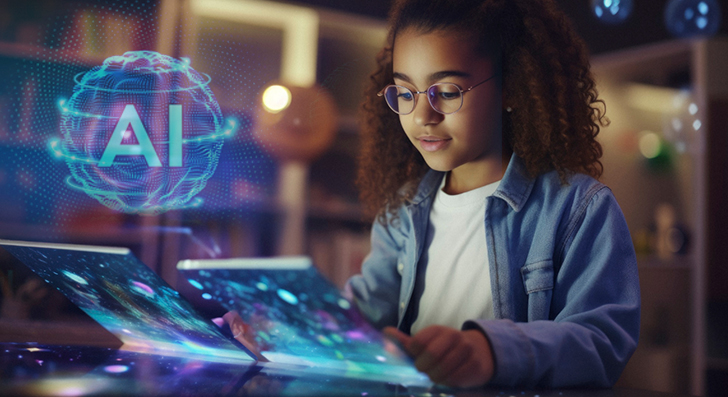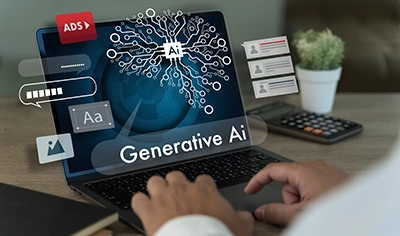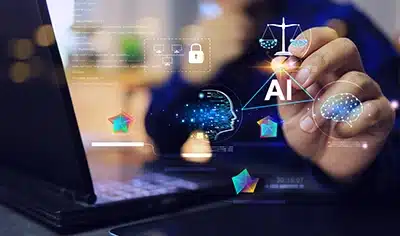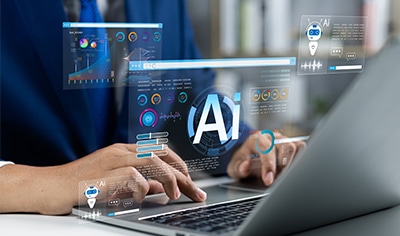EdTech, once confined to the digitization of textbooks, is at the cusp of a paradigm shift, and one technology that is transcending traditional boundaries and redefining the very essence of education is Generative AI. With its ability to respond to user interactions dynamically, generate content autonomously, and adapt to individual needs, preferences, and learning pace, Generative AI is unlocking a new dimension of interactive and personalized learning. This personalized touch not only enhances understanding of concepts but also fosters proactive engagement and participation in the learning process, making education a deeply engaging, responsive, and fulfilling endeavor.
The role of Generative AI in education is not just transformative; but revolutionary since it paves the way for a future where education is not just imparted but crafted and personalized as per the needs of each learner. Furthermore, Generative AI acts as a catalyst for democratizing access to quality education by bridging gaps, dismantling barriers, and transcending geographical constraints & socioeconomic disparities. This may be the reason behind the dramatic rise in the market size of Generative Artificial Intelligence in education, which is projected to surpass 5,523 million USD by 2032. What’s more interesting to note is that Generative AI could bring a staggering 200 billion USD in value to the global education sector by 2025.
7 Promising Generative AI Applications Redefining the Education System
1. Personalized and Adaptive Learning
Personalized and adaptive learning powered by Generative AI represents a paradigm shift in the EdTech space by tailoring educational experiences to the unique needs, preferences, and proficiency levels of individual learners. By employing sophisticated algorithms, this disruptive technology can analyze a student’s strengths, weaknesses, learning patterns, and engagement levels to create personalized learning paths.
The adaptive learning systems powered by Generative AI understand the intricacies of each learner’s cognitive process and dynamically adjust the content, presentation style, and pace to meet their specific requirements. This approach promotes a more personalized learning journey and fosters a sense of autonomy and mastery within each learner. In a nutshell, the shift from a one-size-fits-all approach to personalized and adaptive learning not only boosts student engagement but also optimizes the efficiency of learning outcomes for each student.
2. Automated Content Creation
Automated content generation powered by Generative AI represents a transformative leap in instructional design. By leveraging the power of Machine Learning algorithms and large language models, this emerging technology can create expansive educational materials, from assessments to quizzes and interactive learning materials that align with curricular requirements and educational objectives.
The ability of Generative AI to comprehend and replicate human-like cognitive functions enables it to automate the content creation process while ensuring a varied and immersive educational experience for students. This not only improves the quality of educational materials but also reduces the burden on educators, allowing them to focus on providing personalized guidance and optimizing teaching strategies rather than spending time on content generation. In a nutshell, this revolutionary approach automates content creation, fosters innovation in instructional material development, and eventually contributes to a more effective and adaptive learning environment.
3. Automated Grading and Feedback
Automated grading and feedback powered by Generative AI streamlines the assessment process by leveraging sophisticated algorithms to evaluate assignments, quizzes, and exams. This transformative technology can identify patterns, analyze responses, and assign scores based on predefined criteria, empowering educators with a faster and more efficient way to evaluate students’ performance. Furthermore, the technology also excels in providing instant and timely feedback to students, highlighting strengths, and pinpointing the key areas for improvement. This instant feedback loop not only enhances the learning experience but also aids students in their learning process by making necessary adjustments in real-time. In short, Generative AI in automated grading and feedback not only expedites the assessment workflow but also improves the efficiency of the evaluation process.
The Impact of Generative AI on Content Creation
4. Intelligent Tutoring Systems
Powered by advanced Machine Learning algorithms and Natural Language Processing (NLP) capabilities of Generative AI, intelligent tutoring systems transform the learning experience by simulating the qualities of a human tutor. These virtual tutors can interact with students in a conversational manner, respond to their queries timely, provide explanations, and offer strategic guidance. The best part of these intelligent systems is that they adapt their tutoring approach based on real-time assessments of a student’s understanding and performance. This personalized teaching method transcends the traditional approach, ensuring each student receives end-to-end support where needed. Furthermore, the adaptive nature of these Generative AI-powered virtual tutors allows students to progress at their own pace, reinforcing a better understanding of concepts. In short, Generative AI in intelligent tutoring replaces or augments traditional teaching methods while fostering a more personalized, effective, and adaptive learning journey.
5. Language Translation and Accessibility
Generative AI breaks down language barriers with its advanced Natural Language Processing (NLP) capabilities, which excel at providing accurate and contextually relevant translations between diverse languages. This empowers students from different linguistic backgrounds to access educational materials in their preferred native languages, ensuring a more equitable learning environment. Besides language translation, Generative AI supports accessibility features in education by providing real-time subtitles, converting text to speech, and improving the overall readability of content. In short, Generative AI makes a powerful stride towards democratizing education with language translation and accessibility, which in turn, makes learning resources available to a wider and more diverse audience.
Transformative Use Cases of Generative AI Across Industries
Summing Up
As we navigate this transformative journey, it becomes evident that Generative AI is not merely a technological marvel; it is a catalyst for a revolution in the EdTech space. From personalized and adaptive learning experiences catering to the unique needs of individual learners to the democratization of education through language translation and accessibility – Generative AI stands as a transformative force, paving the way toward an education system that is not only technologically advanced but deeply human-centric. Furthermore, it is important to ensure data security and ethical use of Generative AI applications in the EdTech space. Therefore, educational institutions must implement robust security measures to safeguard sensitive information from unauthorized access or potential misuse. Additionally, ethical policies should be established for adherence to data protection regulations.
Within EdTech, LLM hallucinations may also pose challenges in curriculum development, content creation, and personalized learning experiences. Therefore, educators need to ensure that AI-generated content undergoes rigorous validation processes to mitigate the risk of misconceptions, misinformation, or biased viewpoints. If you are also planning to embrace the applications of Generative AI in higher education, you may consider seeking consultation from an expert.






